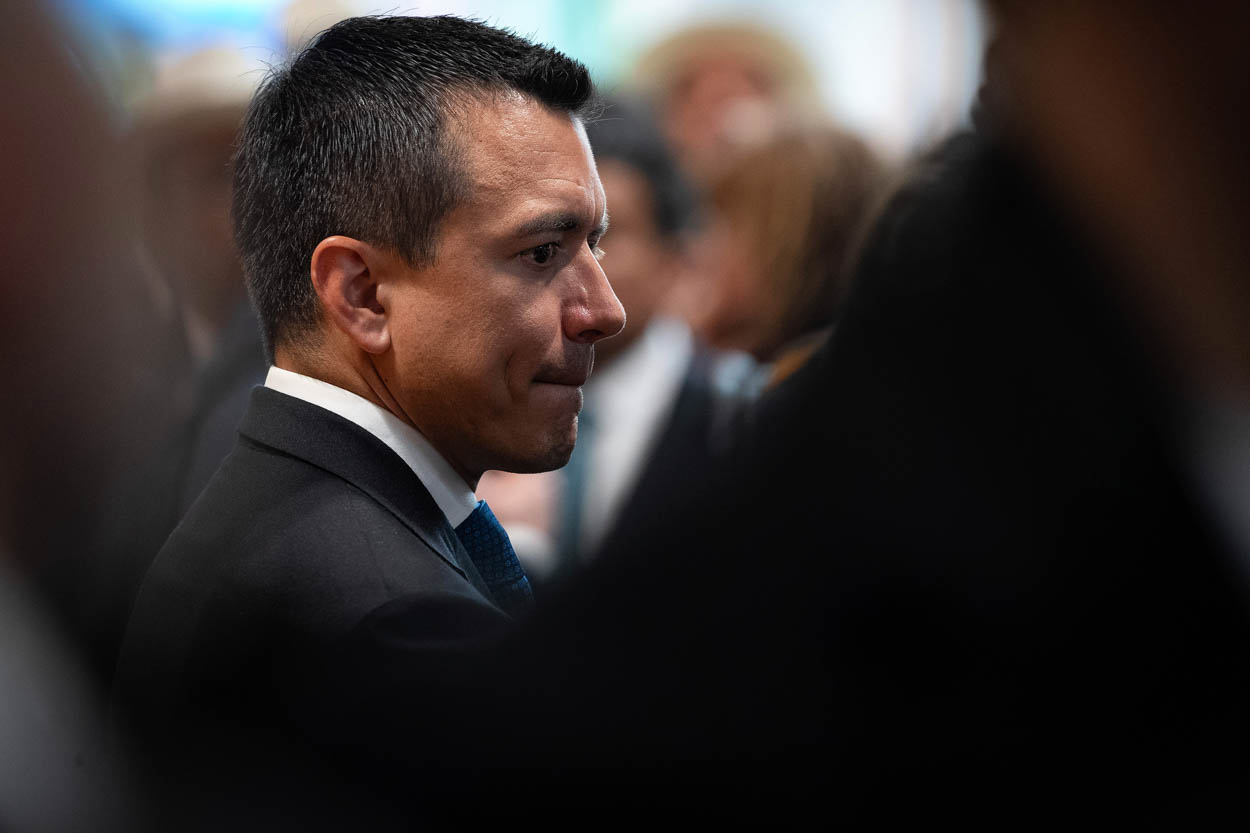New ALBA Trading Currency Dawns at Bolivia Summit
New ALBA Trading Currency Dawns at Bolivia Summit
Leaders from the Bolivarian Alliance for the Peoples of the Americas met October 16 and 17 in Cochabamba, where they charted a course for implementing a virtual currency that could replace the dollar in commercial transactions. ALBA also imposed a blockade on Honduras.
Updated October 20 - Bolivian city Cochabamba played host to leaders from the Bolivarian Alliance for the Peoples of the Americas (ALBA) October 16 and 17. The meeting marked the seventh leaders summit for ALBA, now in its fifth year and with its name modified to swap “Alternative” for “Alliance” in June. At this weekend's meeting, the countries took on the weightier matter of signing a treaty to replace the dollar with a virtual currency—known as the “Sucre”—for commerce between members. Attendees also decided to sanction current member country Honduras in protest of the June 28 overthrow of Manuel Zelaya.
Deepened integration is the name of the game in the move toward use of the SUCRE—an acronym that stands for Sistema Único de Compensación Regional (Unified System for Regional Compensation). But Venezuelan President Hugo Chávez, who originally founded ALBA in 2004 with Cuba, also referenced ideological roots for the new currency when its use was first proposed in April: “This will help us to overthrow the dictatorship of the dollar, imposed on us from over there, from Bretton Woods.” While the Sucre will only be used for commercial exchanges initially, it could eventually be used as a hard currency along the lines of the euro in the European Union.
In its coverage of the summit, Infolatam points out that the member countries (Antigua and Barbuda, Bolivia, Cuba, Dominica, Ecuador, Honduras, Nicaragua, Saint Vincent and the Grenadines, and Venezuela) together form a significant economic bloc. ALBA countries make up a total population of 73 million people and their combined GDP equals $640 billion.
Still, ALBA members rank low in comparison with other countries in the Americas when it comes to passing business friendly reforms, as outlined in the World Bank’s Doing Business 2009 report. Moreover, Caribbean members Antigua and Barbuda, Dominica, and Saint Vincent and the Grenadines are members of the Eastern Caribbean Currency Union and, as such, will not replace use of the dollar with the Sucre.*
In Cochabamba, leaders also moved to create a new multinational company called Alba-Imex with the goal of boosting trade between the countries. Bolivia proposed expanding the Trade of the Peoples Treaty (TPC). Thus far, only Caracas, Havana, and La Paz have signed on to the TPC.
One member could be left out in the cold when it comes to the deeper integration. ALBA leaders said they would not recognize the November 29 election in Honduras unless Zelaya gained reinstatement. Zelaya’s foreign minister, attended the ALBA meeting. In July, De facto leader Roberto Micheletti expelled ALBA diplomats from Honduras.
The final declaration also criticized a U.S.-Colombian security deal and Washington's embargo on Cuba.
Learn more:
- Final declaration of October 2009 summit.
- Final declaration of April 2009 summit, announcing creation of Sucre.
- ALBA statement on political situation in Honduras, August 2009
- Infolatam coverage of the ALBA summit.
- TalCualDigital describes the Cochabamba meeting by saying the summit begins “with more promises and few concrete accomplishments to offer.”
*Editor's note: An earlier update to this story neglected to include this detail.







